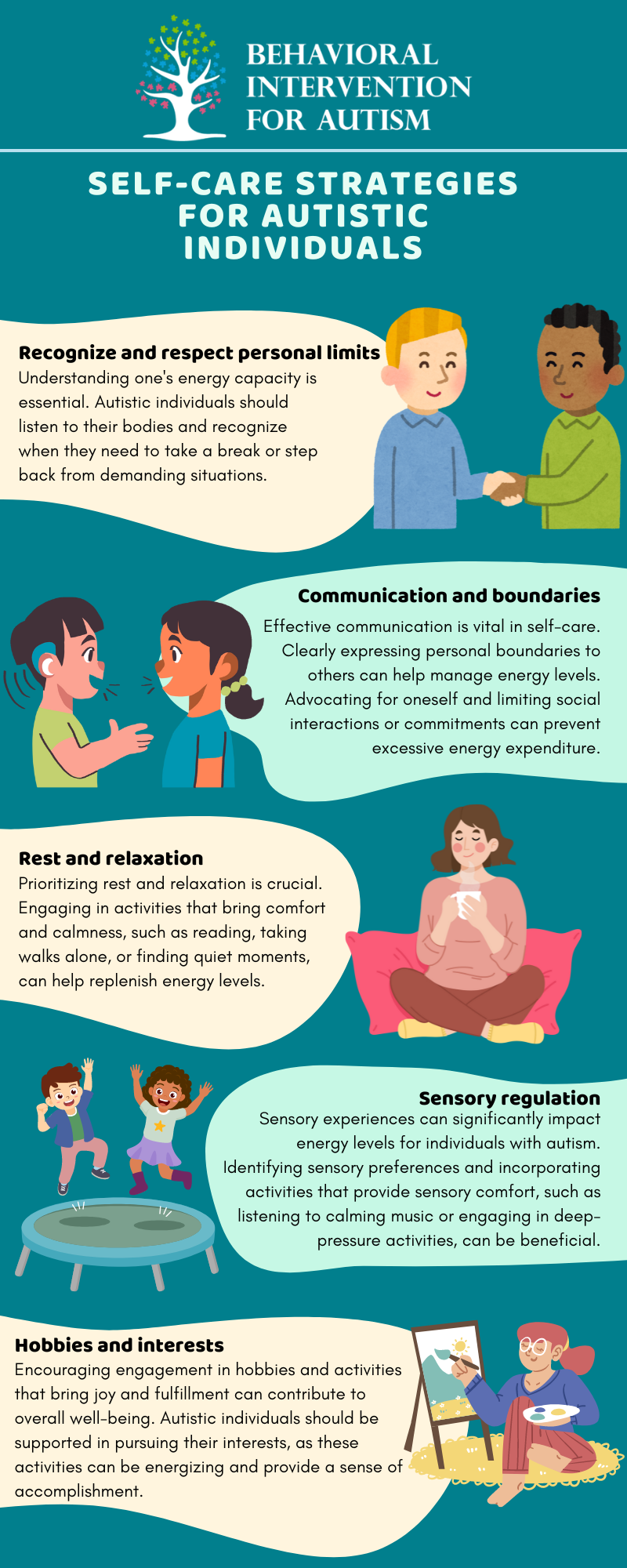
Table of Contents
The concept of Spoon Theory has gained significant recognition and is widely used in various communities, including those with chronic illnesses, disabilities, and autism. This theory provides a simple and concise way to explain energy and ability levels on any given day, making it particularly beneficial for individuals facing unique struggles in the neurotypical world.
But what exactly is it? And how can it help manage autism? Let’s find out.
The Concept of Spoon Theory
Spoon Theory revolves around the idea that individuals, including those with autism, wake up each day with a set number of “spoons” that symbolize their energy levels. These spoons represent the limited amount of energy available to engage in daily activities and interactions.
Factors such as meltdowns, lack of sleep, sensory overload, or social interactions can deplete these spoons rapidly, leading to burnout, fatigue, and even meltdowns. The concept of spoons serves as a visual representation of the energy resources individuals have at their disposal.
The theory has found significant application within the autism community by providing a common language for individuals to communicate their daily energy levels easily. By saying “I’m out of spoons,” individuals can convey their need for support or rest. This shared understanding helps conserve the limited energy of individuals with autism and allows them to navigate daily tasks and interactions more effectively.
Moreover, it enables neurotypical individuals to better understand the challenges faced by those with autism. It offers a concrete way to visualize individuals’ limited energy resources, helping others grasp the impact of chronic illness or disability on daily life.
The “spoon theory,” which was originally created by writer Christine Miserandino in 2003 to describe living with a chronic illness, has resonated with individuals with autism. Autism affects how individuals process sensory information and social interactions, often resulting in quick energy drainage and a feeling of mental exhaustion.
This experience is akin to having a limited number of “spoons” each day.
Managing Energy Levels
One of the key aspects of understanding and applying the Spoon Theory in the context of autism is effectively managing energy levels.
As mentioned, the theory revolves around autistic individuals waking up with a set number of “spoons” which symbolize their energy levels for the day. However, various factors such as meltdowns, lack of sleep, sensory overload, or social interactions can deplete these spoons, leading to burnout, fatigue, and meltdowns.
By recognizing and managing these depleting factors, as well as setting boundaries, individuals with autism can better conserve their limited energy and navigate their daily lives more effectively.
Depleting Factors
Several factors can deplete the energy levels or “spoons” of individuals with autism. It is important to identify and manage these factors to prevent exhaustion and burnout.
Some common depleting factors include:
- Meltdowns
- Lack of sleep
- Sensory overload
- Social interactions
- Emotional stress
- Cognitive overload
- Unexpected changes
By recognizing these factors, individuals with autism and their caregivers can take proactive steps to minimize their impact. This may involve creating calm and predictable environments, implementing strategies to manage sensory overload, practicing effective communication techniques, and providing opportunities for rest and rejuvenation.
Setting Boundaries
Setting boundaries is essential for managing energy levels in individuals with autism. By understanding personal limits and communicating needs effectively, individuals can conserve their energy and prevent exhaustion.
This may involve the following:
- Clearly communicating personal boundaries to others, such as family members, friends, and colleagues.
- Saying “no” when necessary and not overcommitting to social activities, responsibilities, or obligations.
- Prioritizing self-care activities that promote relaxation, stress reduction, and overall well-being.
- Creating a schedule or routine that allows for breaks and downtime throughout the day.
- Implementing strategies to manage sensory input and avoid overwhelming environments.
Setting boundaries helps individuals with autism maintain a balance between their energy expenditure and energy conservation. By respecting their own limits and effectively communicating them, individuals can navigate their daily lives while preserving their physical and emotional well-being.
Self-Care Strategies
Self-care plays a crucial role when it comes to managing energy levels and overall well-being in individuals with autism. Incorporating self-care strategies into daily routines can help autistic individuals stretch their limited supply of energy and maintain their overall well-being in conjunction with the principles of spoon theory autism.
Self-care is essential for everyone, but it holds particular significance for individuals with autism. Autistic individuals often face unique challenges in managing their energy levels and navigating the demands of daily life.
Making self-care a priority can help them conserve energy, reduce stress, and promote overall mental and emotional well-being.
Incorporating Self-Care
Incorporating self-care into daily routines is key for autistic individuals to manage their energy effectively. Here are some self-care strategies that can be beneficial for them:
Remember, self-care is a highly individualized process, and what works for one person may not work for another. It’s important to explore different self-care strategies and find the ones that resonate with each individual’s unique needs and preferences.
Spoon Theory for Children with Autism
Understanding the unique energy challenges that children with autism face is key to effectively supporting them.
Children with autism may start their day with fewer energy “spoons” due to various factors such as disrupted routines, sensory issues, and changes in their environment. These factors can significantly impact their ability to cope with the demands of school. It’s crucial to recognize that these challenges are not indicative of a lack of discipline or structure but rather a result of depleted energy resources.
When an autistic child runs out of “spoons,” they may experience difficulties coping. This can lead to behaviors like afternoon meltdowns, anxiety during break times, and struggles in completing tasks such as homework.
It’s important to remember that these behaviors are not intentional but rather a sign of depleted energy.
Supporting Children’s Energy
To effectively support children with autism based on Spoon Theory, it is crucial to recognize and respect their limited energy capacity. Here are some strategies to achieve that:
- Recognize and Adjust – Pay attention to a child’s energy levels and adjust expectations accordingly. Allow for breaks when needed and avoid overwhelming them with excessive demands.
- Create a Calming Environment – Provide a supportive and soothing environment that minimizes sensory overload. This can include using noise-canceling headphones, providing a designated quiet space, or using visual schedules to enhance predictability.
- Promote Communication – Encourage open communication with the child to allow them to express their needs, frustrations, and concerns. This can help them conserve energy by reducing anxiety and promoting a sense of understanding and support.
- Utilize Visual Supports – Visual supports, such as visual schedules and social stories, can help autistic children navigate their daily routines more efficiently. These tools provide visual cues and reminders, reducing the cognitive load and conserving energy.
- Break Tasks into Smaller Steps – Breaking tasks into smaller, manageable steps can make them less overwhelming for children with autism. This approach helps them conserve energy and feel a sense of accomplishment as they complete each step.
Remember that each child with autism is unique, and their energy levels can vary from day to day. Building trust and understanding with the child is crucial for managing their energy effectively.
By recognizing their limited energy capacity, making necessary adjustments, and providing support, we can help children with autism navigate their school environment more successfully.
Sources:
https://www.edpsyched.co.uk/blog/autism-spoon-theory
https://autisticmama.com/what-is-spoon-theory
https://myautismmind.com/spoon-theory-mental-health
- 9 Common Obsessions of Children With Autism You Should Know - February 25, 2025
- What is Neurodiversity? A Guide to Embracing Differences - February 25, 2025
- Understanding Hyperfocus in Autism: What It Means and Why It Happens - February 25, 2025




